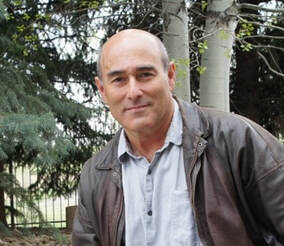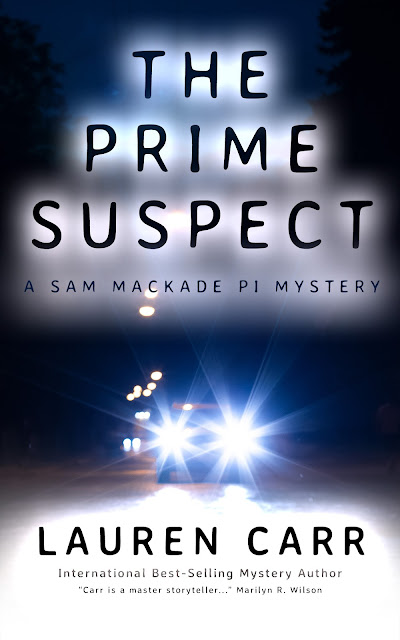We've all dealt with one in our lives: emotional predators. How do we protect ourselves from their emotional abuse and break free from an abusive relationship? This book has the answer. Check out my insightful interview with author Steven J. Wolhandler. Then scroll down to enter the giveaway for a chance to win a copy of this book or a $25 Amazon GC.
Book Details:
Book Title: Protecting Yourself from Emotional Predators: Neutralize the Users, Abusers and Manipulators Hidden Among Us by Steven J. Wolhandler
Category: Adult Non-Fiction
Genre: psychology, self-help, relationships, divorce
Publisher: Amare Press
Release date: January, 2019
Tour dates: Sept 9 to Sept 27, 2019
Content Rating: G
Book Description:
Steven Wolhandler, JD, MA, LPC knows how abusive and manipulative people prey on the emotions of good people - and how good people can protect themselves. He offers a radically different view of these Emotional Predators and provides practical effective solutions. For Emotional Predators, life is a strategy game to dominate and control, and you are either a player to be defeated or a game piece to be used. Without empathy or remorse, they’ll ruin your life, and traditional approaches will make things worse. You’ll learn 5 essential steps for protecting yourself, valuable guidance for safe relationships and over 30 specific defensive tactics for:
- Distinguishing romance from intimacy
- Restoring your self-esteem
- Removing your emotional triggers
- Using gratitude and humor
- Playing their games better than they do - without becoming like them
- Screening professionals to be sure they can help
- Regaining control in family court
- Breaking an addiction to an Emotional Predator
- Re-balancing power in your favor
- Adjusting beliefs that keep you trapped
- Responding strategically, instead of reacting emotionally
Watch the trailer:
An insightful interview with Steven Wolhandler:
LCR: Thank you very much for taking the time to do an interview with me. Now, let's talk about your new book. What made you write this book?
SJW: Through decades of working with abusive and manipulative people (Emotional Predators) - and with the good-hearted, decent people they target, I’ve learned important things about protecting yourself from abuse and manipulation that I couldn’t find in one comprehensive book. I found good information in a few books that I’d refer client’s to. I also found a lot of naïve, incomplete, even dangerous, books about Narcissists, Sociopaths and other predators, most of which are founded on an outdated understanding of human nature. But I could not find one book that provided a comprehensive, no-nonsense and radically new approach to understanding and dealing with the abusive and manipulative people who fly under our radar and wreak havoc with our lives, and who are epidemic in our world today. Clients urged me to fill this gap.
I wrote Protecting Yourself from Emotional Predators: Neutralize the Users, Abusers and Manipulators Hidden Among Us to present in clear language both a new paradigm for understanding the true nature of these problem people and practical effective steps and tactics for protecting yourself and your loved ones – all one easy-to-read book. It’s an eye-opening and lifesaving practical resource. Its message is hope based in realism.
LCR: What are two distinguishing traits of emotional predators?
SJW: First - their lack of functioning empathy, which prevents them from having a conscience and compassion (although they can be very good at faking both while they relentlessly pursue control, dominance and winning). For Emotional Predators, life is a strategy game to dominate and control, and other people are either players to be defeated or pawns to be used.
Second - their charming, seductive and winning façade that lets them fly under the radar of their targets, keeping them hidden until it’s too late. The subtitle of my book is “Neutralize the Users, Abusers and Manipulators Hidden Among Us” to highlight the stealth nature of Emotional Predators.
LCR: How can a person help a family member who is in a long-time relationship with an emotional predator?
SJW: First read my book so you are fully educated about the nature of the beast your family member is dealing with. Other steps may depend on how aware your family member is: do they know they’re in relationship with a disturbed person? Are they in denial? Have they asked for help?
After you read my book, if you are confident your family member can resist any urge or pressure to share what they learn from the book with their Emotional Predator, then get your family member their own copy (you’ll need to make notes in and refer back to your copy, so don’t give them yours). Be sure to instruct them to resist all urges to share what they learn from it with the Emotional Predator. They may want to keep it at their office or other location where their Emotional Predator will not find it.
Each Emotional Predator is its own mix of malignant features and each situation is unique, so every tactic in the book may not be useful in every situation. General guidelines you can introduce to your family member include (these are summarized in the Review chapter for easy reference):
1 - Be realistic about human nature – drop your naïve belief that because you are generally decent and good everyone else is basically similar. In fundamental ways, Emotional Predators are nothing at all like decent people. Be realistic about the ruthless, unconscionable and selfish manipulation and abuse these people are capable of.
2 - Accurately assess others – see through Emotional Predators’ seductive, charming facades.
3 - Recognize Emotional Predator traits and behaviors – these are described in detail in Chapter 3 of the book. Commit them to memory. To name a few, they claim to be the victim (usually of the person they’re victimizing); fake sincerity and emotional displays; pretend to be innocent and ignorant; trap others in “no-win” binds where you’re damned if you do and damned if you don’t; provoke others to emotional reactions; isolate and “gaslight” their targets; create unnecessary havoc, confusion and chaos, and disrupt your natural rhythms; ignore rules; say and do anything to get what they want; relentlessly manage their public image; lie by omission (leaving out the facts that would reverse the meaning of their story); lie with affirmative statements; misdirect attention away from their bad behaviors; and avoid giving direct answers to direct questions.
4 - Know yourself better than the Emotional Predator knows you.
5 - Adjust your core stories about who you “must” be in order to be a “good” person.
6 – Respond strategically, don’t react emotionally.
7 - Play Emotional Predator games better than they do. Don’t bring a knife to a gun fight. The book explains why this does not make you one of them.
8 - Control information.
9 - Practice deception.
10 - Cultivate allies.
11 - Conserve resources and avoid losing battles – don’t be provoked. The book explains the 3 levels of remaining unprovoked.
12 - Practice gratitude and humor.
LCR: How can a person help the children of a parent who is an emotional predator?
SJW: That depends on their age and how intimidated and bullied they are by their Emotional Predator parent, and also whether they have another parent or other relatives or adults in their lives who are not Emotional Predators.
Anyone who wants to help someone else (child or adult) who’s dealing with an Emotional Predator should start by reading my book. It explains how many of our natural reactions and responses make things worse. It also gives guidance for screening professionals like therapists for children to help you weed out therapists and other professionals who will not understand the true nature of the toxic person the child is dealing with, or worse who may be as disturbed as that toxic person.
You can help a child of any age who’s dealing with an Emotional Predator parent by teaching the child (in age-appropriate language) about different kinds of people, including people who are bullies and selfish and put themselves first and whose words don’t really tell the whole story. You can describe the traits and behaviors of these toxic people, without ever mentioning the Emotional Predator parent, and ask the child if they know anyone at school or elsewhere in their lives who are like that. Let the child provide you with their own examples of toxic people. Again, you can teach children about Emotional Predators without ever mentioning the child’s Emotional Predator parent. Over time, unless they’ve been severely damaged by the Emotional Predator parent, the child will figure it out for themselves. Children are generally smarter and more resilient than we believe.
Most importantly, adjust your own false story that being the child of an Emotional Predator is a horrible curse. Children of Emotional Predators have the opportunity to grow up much more aware of how abusive and manipulative people operate and can have a much better chance of avoiding entanglements with them as adults. Having an Emotional Predator parent can be a blessing in disguise.
LCR: What is your first line of advice to protect ourselves from emotional predators?
SJW: Understand the true nature of the problem (and how current popular theories about human nature and mental health are outdated and inadequate) and then follow the 5 steps laid out in the book (a chapter for each step). Step 1: Identify Emotional Predators behind their facades. Step 2: Know yourself better than an Emotional Predator knows you. Step 3: Be flexible about the ways you define yourself. Step 4: Whenever possible, disengage. Step 5: When you must (or choose to) remain engaged, be strategic.
Perhaps the single most important thing to remember is to know it, don’t show it. Keep your thoughts and emotions to yourself and do not let an Emotional Predator know them.
LCR: Steven, thank you once again for this insightful interview. I have bought a copy of your book and will share it too.
To my readers:
Please freely copy and distribute this post, but be sure to include that it was written by Steven Wolhandler, author of Protecting Yourself from Emotional Predators. (It’s copyright, Steven Wolhandler, 2019) Thanks!
Meet the Author:
Steven Wolhandler, JD, MA, LPC is a psychotherapist, mediator, arbitrator, custody evaluator, national consultant and retired attorney. He has decades of experience dealing with, and learning from, difficult and manipulative people, and helping their victims with penetrating insight, effective solutions, warmth and humor. He lives in Colorado, consults with people internationally through www.creativeresolutions.org.
Connect with the author: Website ~ Facebook
Connect with the author: Website ~ Facebook
Enter the Giveaway!
Ends October 4, 2019
Note: The GRAND PRIZE is transferable. This means if the winner knows someone who could use the free consultation, then they may transfer the prize to him/her.









Thank you very much for sharing this informative interview. Good information.
ReplyDeleteThank you so much for your great interview questions and spreading the word about my book. If anyone has any questions about Emotional Predators, they should feel free to leave them in the comments and I'll check back and answer. Or if it’s personal, they can reach me through emotionalpredators.com
ReplyDeleteMy pleasure, Steven. I bought a copy of your book for someone who I believe would benefit greatly from the info. Thank you for writing it!
Delete